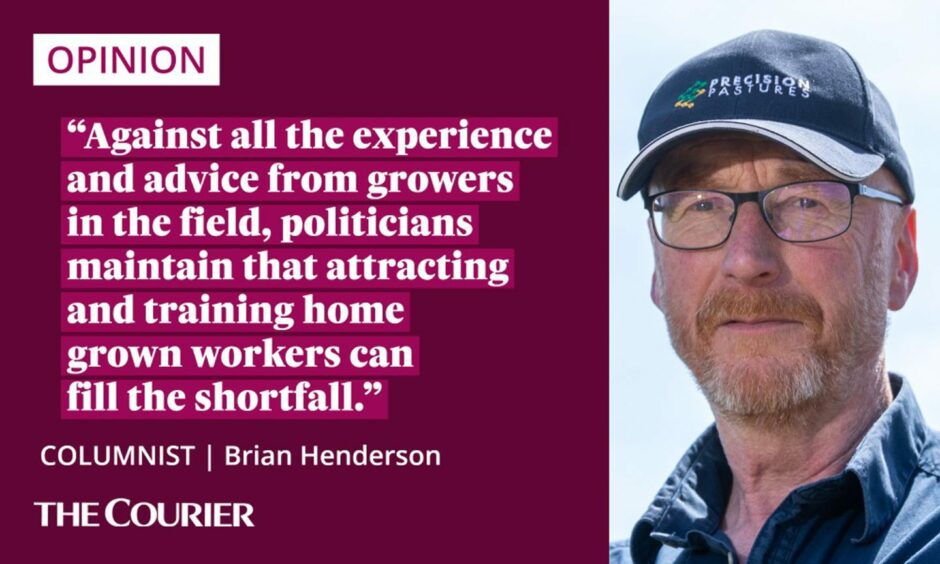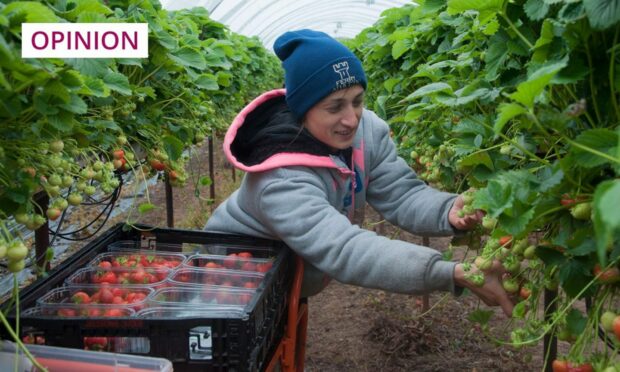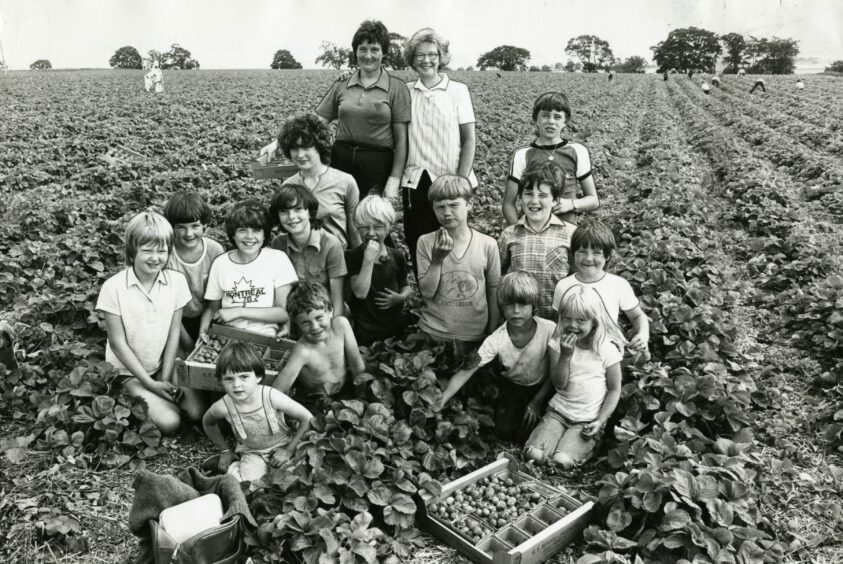Labour shortages are still among the biggest problems facing many farmers and growers. So the revelation earlier this week that pressure is growing in the ranks of the Conservative party to tighten immigration policy further did not come as good news.
The difficulties involved in finding enough people to harvest the country’s berry crops have been hitting the headlines since Brexit halted the free movement of labour from the EU – and with it the flow of keen and hardy workers from many areas of Eastern Europe.
The sudden removal of access to this important source of seasonal workers did not suddenly result in the hoped for “Dig for Victory” type response.
The promised legion of volunteers from the British workforce did not take to the berry and vegetable fields to harvest these important crops.
And, as a result of the struggle to recruit or retain home-grown labour to replace the missing migrant workers, many growers have been forced to cut back or even quit the sector altogether.

Despite much investment, automated or robotic berry picking still remains elusive.
At the same time, the seasonal scheme which allows 45,000 temporary workers in to help with such jobs has fallen well short of the number required to see all the various crops across the whole of the UK safely harvested.
So, while the so-called “New Conservatives” were calling for further curbs, it was interesting to hear a more considered opinion voiced by an older Conservative.
Fruit pickers are skilled workers
The views of the MP for Camborne and Redruth in Cornwall – the former UK farm minister and eventually Secretary of State for the environment, George Eustice – would certainly have been given a hearty vote of approval by Scotland’s soft fruit growers.
In an interview with the BBC last week Mr Eustice launched a strongly critical attack on the UK’s immigration policy and its current definition of “skilled workers” – usually white collar executive types – who are given an easier ride when applying for jobs in the UK.
The former minister called for a total reappraisal of the all important list of skilled workers, and said people who were good with their hands, such as fruit-pickers and vegetable packers, should not be deemed “low-skilled”.
In his opinion, these workers fully deserved a place on the list, while some of the more office-bound jobs, which are less difficult to fill, should be removed from it:
“If you’re going to have ‘skills’, at least recognise the correct skills – and those are dextrous, human skills,” he said.
AI can’t replace fruit pickers – politicians are another matter
Mr Eustice also noted that it was still nigh on impossible for robots and artificial intelligence to acquire the nimble-fingered skills required to pick berries in unpredictable and varied environments.
However, clever computer coding could actually go a long way towards doing much of the work currently carried out by professions such as lawyers and insolvency practitioners.
“Robots find it easier to replace cognitive skills,” he said.
“You can train a robot to be a grand master of chess quite easily. You can’t train a robot to be a fielder and catch a cricket ball.
“Those dextrous skills that humans have are actually quite difficult to replicate in robots.”
Unsurprisingly, the politicians who are currently in charge of setting the policy on immigration support the status quo.
Against all the experience and advice from growers in the field, they maintain that attracting and training home grown workers can fill the shortfall.
Maybe – with the lack of the real stuff on display – the time is ripe to introduce some artificial intelligence at cabinet level.
Brian Henderson farms a mix of arable and livestock enterprises with his family on their farm in Perthshire. He is a longtime agricultural commentator and a weekly columnist for The Courier.












